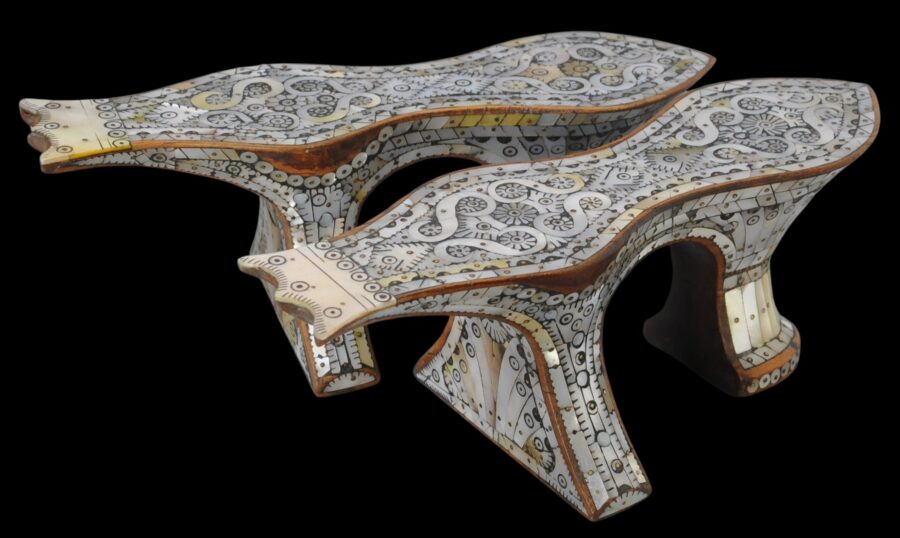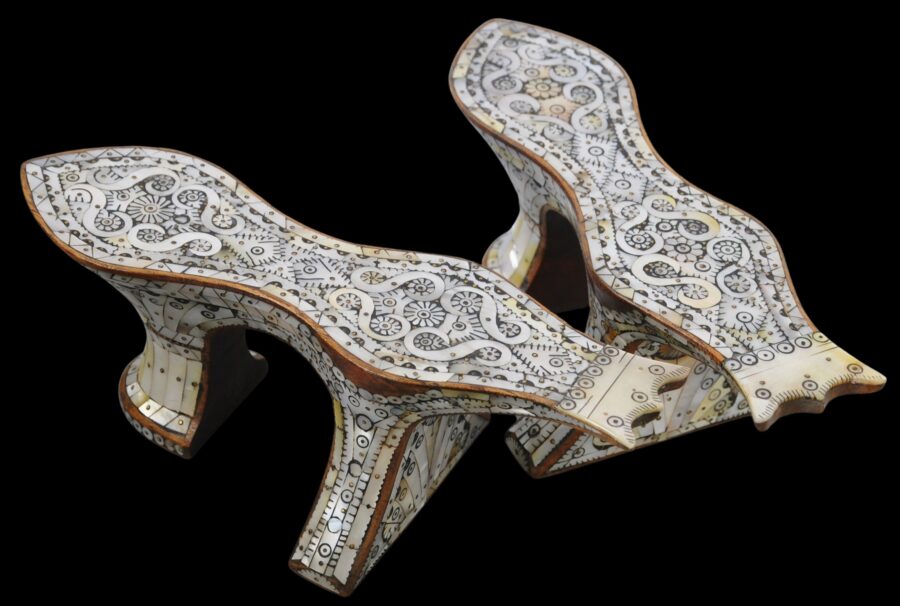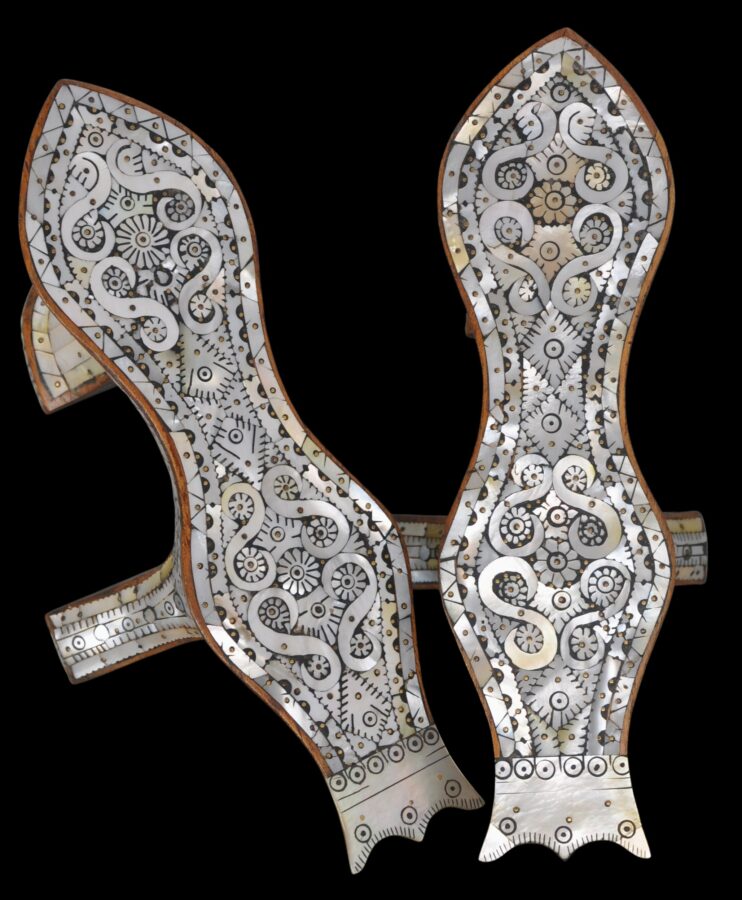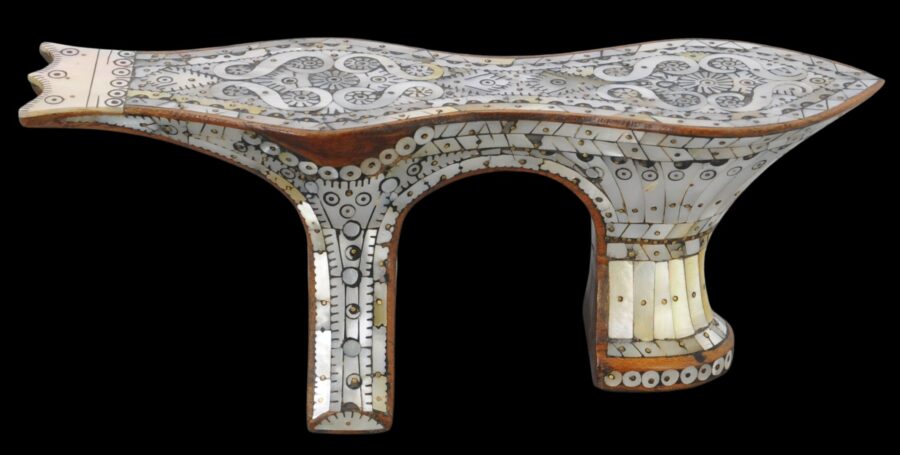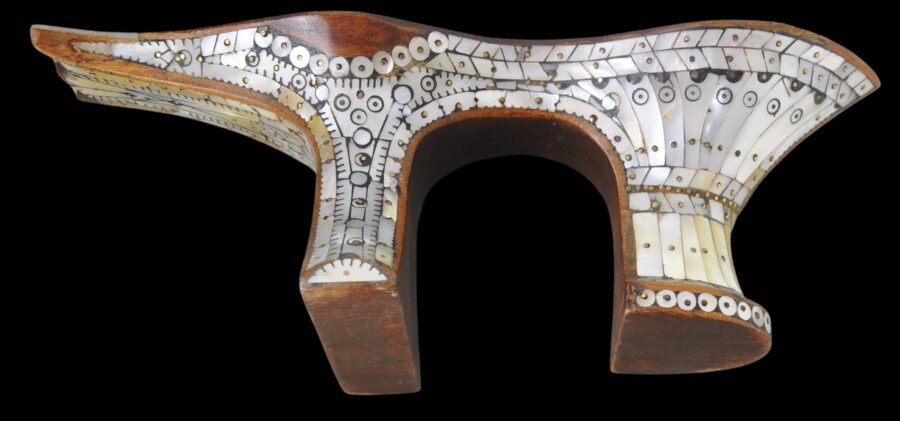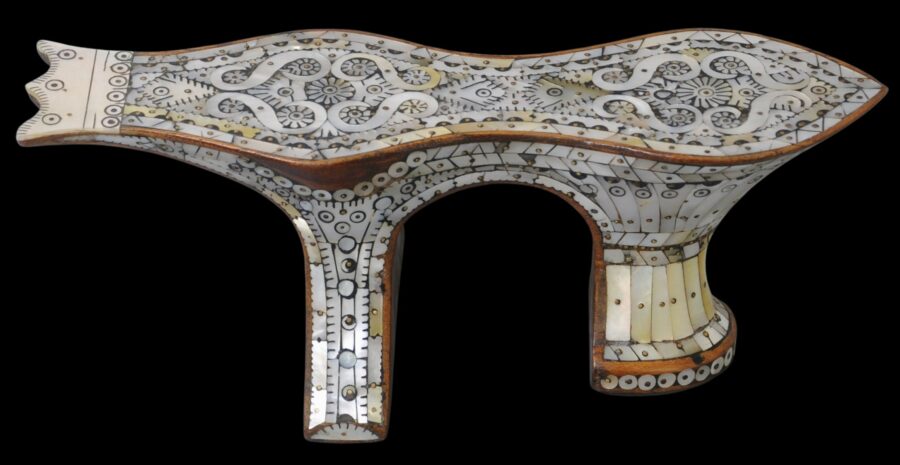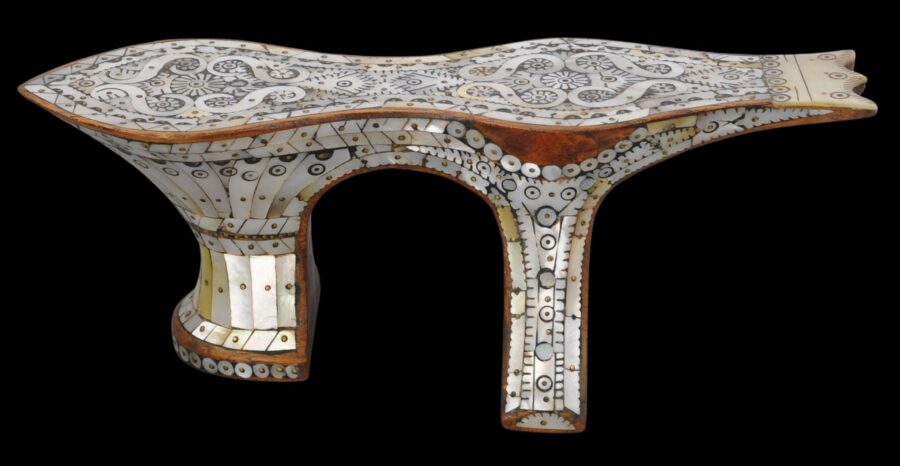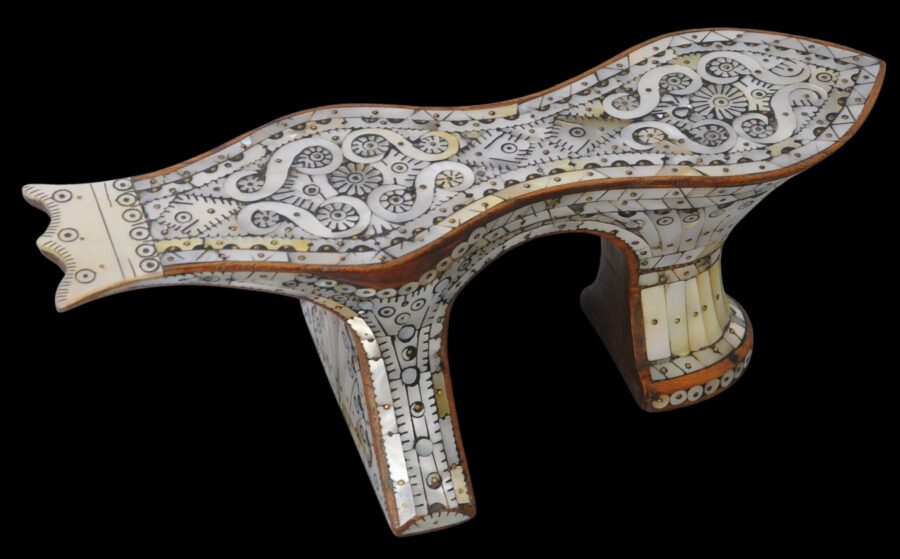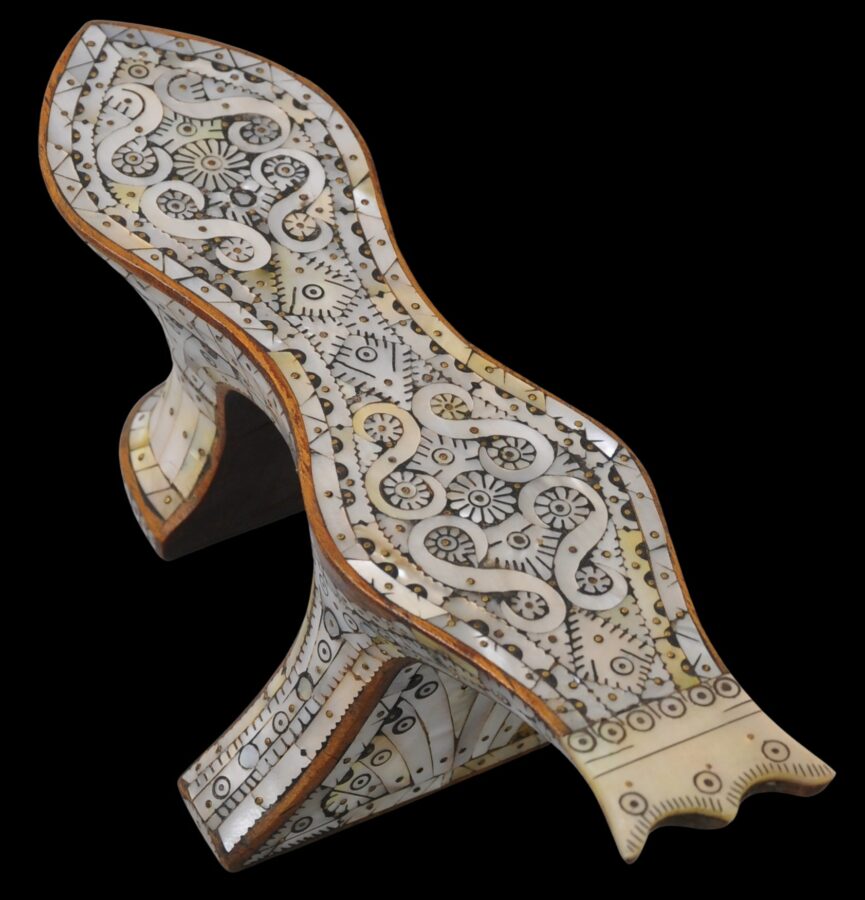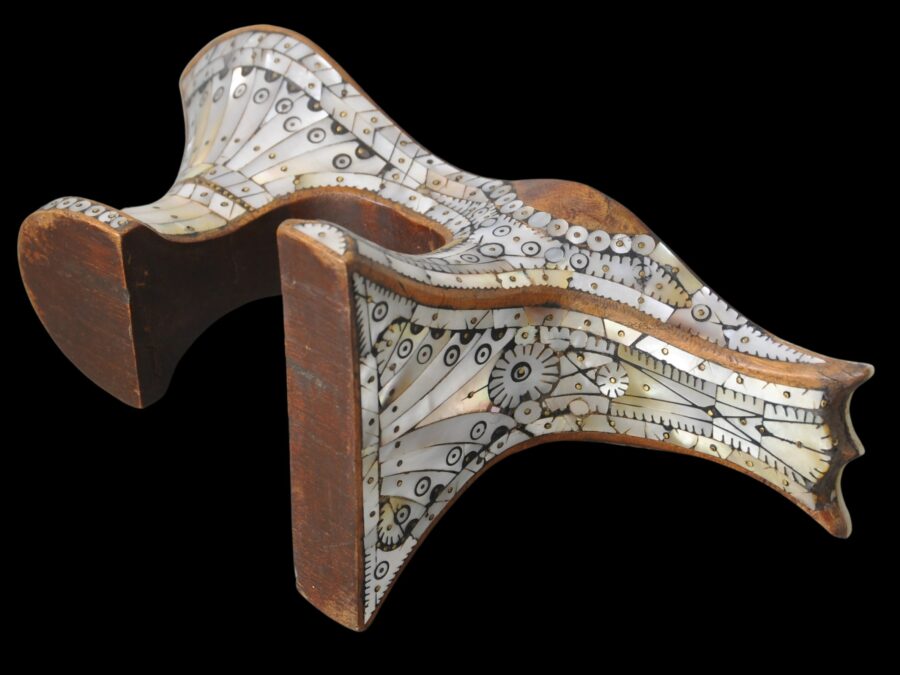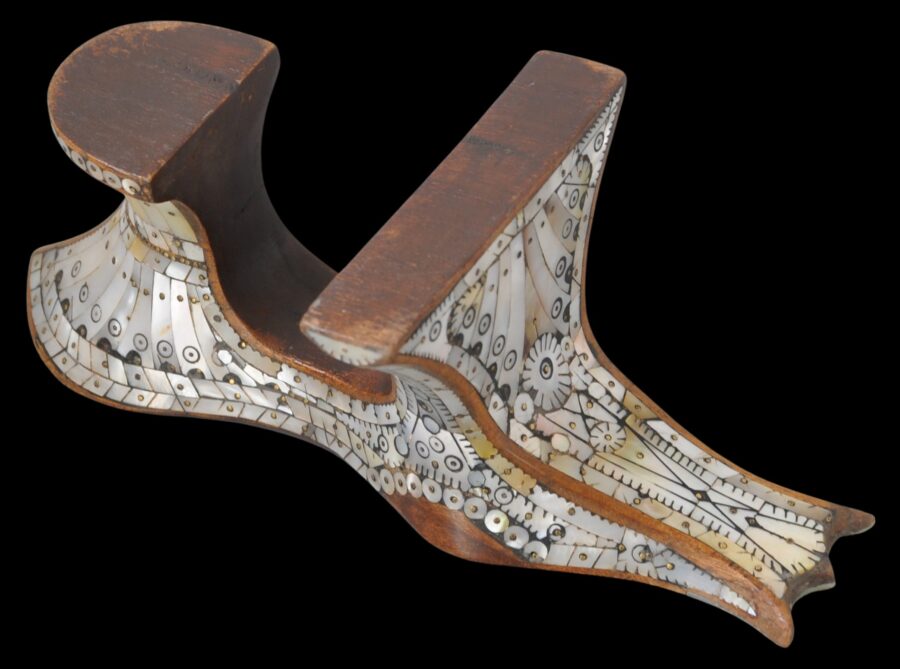Enquiry about object: 9248
Armenian Mother-of-Pearl Inlaid Bath Clogs (Koturny)
Armenia early 19th century
length: 23.6cm, width: 10.2cm, height: 8.2cm, combined weight: 689g
Provenance
UK art market
This very fine pair of woman’s clogs (known as koturny among the Armenians, and qabqab or nalin among the Ottoman Turks based on their Arabic name) has been carved from wood – probably olive wood, and luxuriantly inlaid all over with mother-of-pearl plaques. Each is on high, flared platforms.
A cloth strap would have been wound over the top of the foot and the underside of the clog to hold them in place.
The Caucasian Peoples (2001, p. 117) illustrates a related set of similar form and inset with mother-of-pearl, though less extravagantly. This pair is also attributed to 19th century Armenia.
The mother-of-pearl inlay mirrors that used on flintlock muskets used by aristocratic officers in Ottoman Greece, the Balkans and Turkey.
Such clogs were designed for a wealthy woman so that when worn she would be elevated above a wet and dirty floor. Walking, however, required the assistance of an attendant, and the higher the clog, then the more attendants who would be needed, so particularly high clogs became status symbols. Their Arabic name – qabqab – derives from the sound they made when they were being used.
See Kok (2007, p. 76) for a related pair but clad in silver in Istanbul’s Sadberk Hanim Museum.
The pair here is in excellent condition, and show little sign of use. Probably they were acquired when they were relatively new and brought back to the UK as a 19th century Grand Tour souvenir.
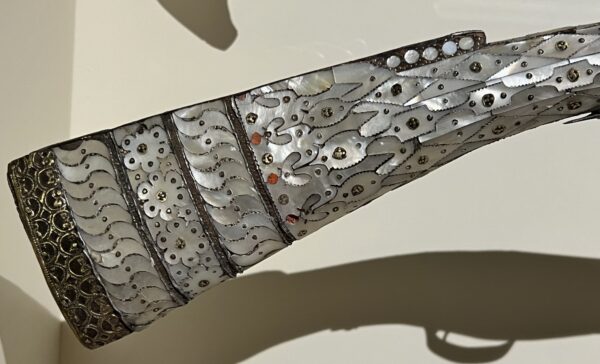
Above: Detail of an Ottoman Balkans flintlock musket (tanchitsa) butt or stock set with mother-of-pearl. Early 19th century. Photographed in the Rupe Ethnographic Museum, Dubrovnik, Croatia.
References
The Caucasian Peoples, catalogue for an exhibition of the Russian Ethnographic Museum, staged at the Hessenhuis, Antwerp, Belgium, 2001.
Koc, A., et al, Istanbul: The City and the Sultan, Nieuwe Kerk, 2007.



